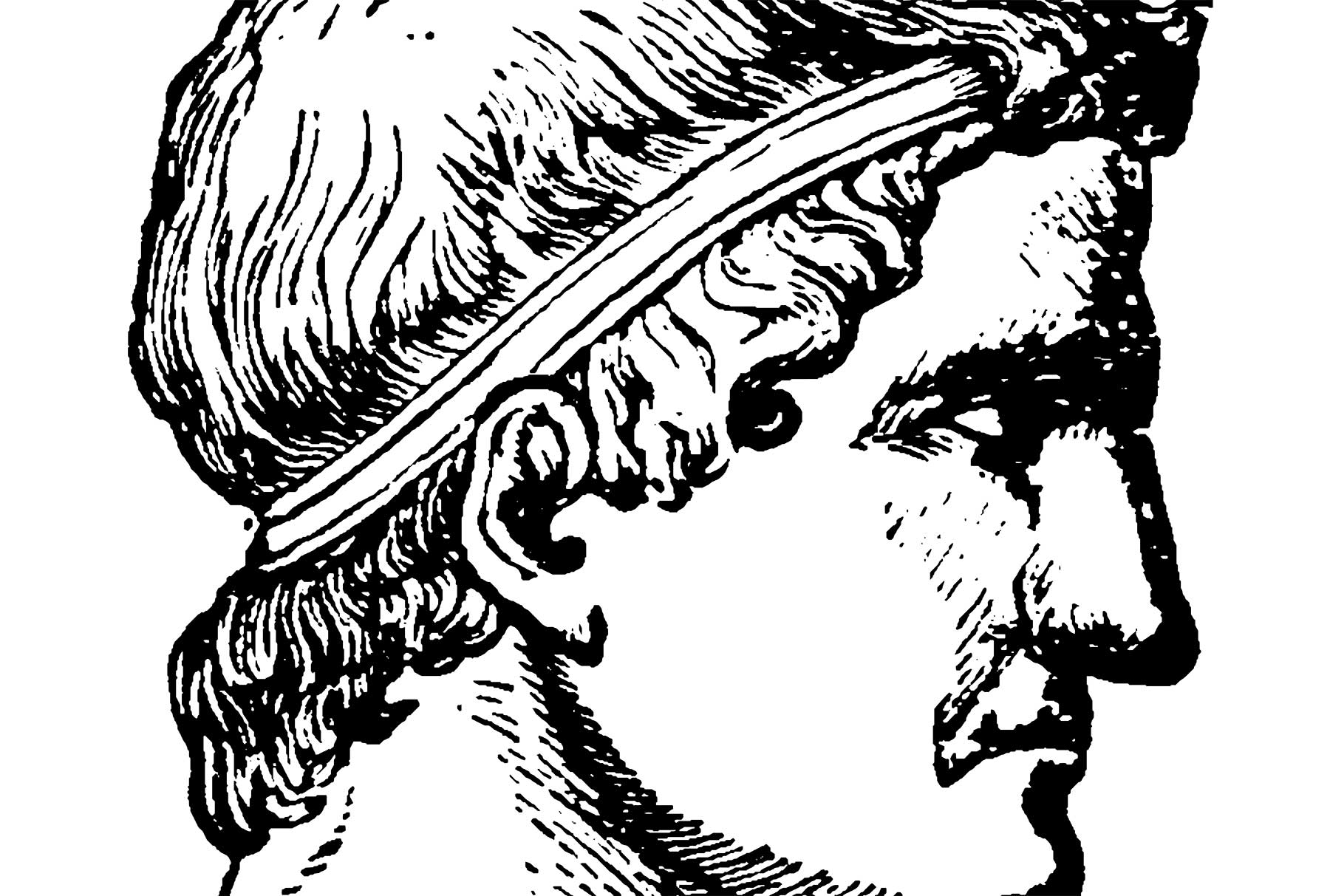Juan García González
Juan's subject area is classics. His PhD project title is 'The Exiles of the Sullan Regime and the Elites of the Empire: Interaction, Discourse, Politics and Integration in the 70s BC'. Read more.
Project description
Sulla took power in Rome in 82BC. The regime that he set up was not deeply modified until the year 70BC.
While the Sullan model lasted, many of those who had supported the defeated faction in the Civil War were killed in the proscriptions. Many leaders of that camp had to flee Italy. These exiles led political and military movements against the faction that was ruling in Rome. They spurred military revolts in several Roman provinces to introduce political reforms.
These developments are intimately connected among them. A comprehensive study would explain the strategies pursued by these individuals. It would also consider their ideological motivations.
This thesis will define the existence of a movement for political reform. The movement organised and extended across the Roman Republic in the decade of the 70s BC.
The project will carry out a prosopographical study of the exiles of the Sullan regime. It will also explore the political discourse that they developed to attract the local ruling class of several areas of the empire in their struggle against the government established in Rome.
The study will encompass a wide range of literary, numismatic, archaeological and epigraphic evidence. It will provide a comprehensive and innovative exploration of the relationships among the elites of the Empire at a time of deep and traumatic political change.
Research grants
AHRC Full Studentship (Northern Bridge Consortium) 2018-2021.
Presentations and conferences
-
December 2021: “Ius as a recurring theme against the Sullan regime in the 70s BC”. Talk in the “Classics & Ancient History research seminar”, Newcastle University.
-
October 2021: “Algunas reflexiones en torno a P. Otacilius Arranes. La promoción de un jinete del Bronce de Áscoli como desafío al modelo clientelar tradicional” (co-speaker with Borja Martín Chacón). Talk in the “2nd International Workshop in Epigraphic Studies-UCM: Monumenta epigraphica. Publicity, promotion and property”, Complutense University of Madrid.
-
October 2021: “P. Otacilius Arranes: from the turma Salluitana to Casinum” (co-speaker with Borja Martín Chacón). Talk in the “Ancient History Work in Progress Seminar”, Newcastle University.
-
May 2021: “Between Catiline and Sertorius: The Rebellious Life of C. Cornelius Cethegus”, Northern Lights Workshop 2020+1, Newcastle University.
-
June 2020: “The bellum Sertorianum as a rhetorical tool in Cicero’s speeches”. Talk in the “Cicero Away Day XI”, University of Birmingham.
-
November 2019: “The turma Salluitana and the Sertorian War: a case study on foreign clientelae”, Talk in the “Ancient History Work in Progress Seminar”, Newcastle University.
-
April 2019: “El templo de Iuppiter Stator de Cartagena y el bellum Sertorianum: edilicia religiosa como conmemoración de hechos de armas”. Talk in the “I International Workshop on Aedilitian Epigraphy. Talking Walls. Aedilitian Inscriptions in the Iberian Peninsula and the Mediterranean”, Complutense University of Madrid.
-
February 2019: “The Syme-Yourcenar controversy about Memoirs of Hadrian”. Talk in the congress “Authority in creating contemporary narratives about the Classics”, Newcastle University.
-
February 2019: “Veritas: a slogan in Hispania during the Sertorian War”. Talk in the “Ancient History Work in Progress Seminar”, Newcastle University.
-
December 2018: “Glandes inscriptae Sertorianae and maritime power”. Poster for the “Epigraphic Saturday 2018 – aka JoyceFest” honouring Joyce Reynolds, Faculty of Classics, Cambridge.
-
May 2018: “El significado de pietas en las glandes inscriptae del bellum Sertorianum: bases para una propuesta de interpretación histórica”. Talk in the “XVII Encuentro de Jóvenes Investigadores de Historia Antigua”, Complutense University of Madrid.
-
May 2018: “Nueva interpretación histórica del templo dedicado a Iovis Stator de Cartagena”. Talk in the “XII Congreso Internacional de la Sociedad Española de Ciencias de las Religiones”, University of Zaragoza.
-
October 2017: “Sic semper tyrannis. Creación y recepción de arquetipos perversos en la serie Roma” (co-author with David García Domínguez). Poster for the conference “En los Márgenes de Roma. Apropiaciones y reinterpretaciones de la Antigüedad romana en la cultura de masas contemporánea”, Autonomous University of Madrid.
-
June 2017: “The Sertorian War as a bellum civile: an outlook from the 4th and 5th centuries AD”. Talk in the “18th Annual Postgraduate Colloquium Centre for Byzantine, Ottoman and Modern Greek Studies (CBOMGS)”, University of Birmingham.
-
May 2017: “Quinto Sertorio Proconsole: Gli slogan e i simboli sulle glandes inscriptae”. Lecture for the Department of Humanities of the Ca’ Foscari University of Venice.
-
March 2017: “Cicatrices adverso corpore. Il corpo come esempio di virtù nel discorso politico degli homines novi durante il bellum Sertorianum”. Talk in the “Seminario Poikilia II”, Department of Humanities of the Ca’ Foscari University of Venice.
-
December 2016: “Relaciones de poder en la serie Roma a través de los personajes de Marco Antonio y Atia” (with David García Domínguez). Talk in the 19th Conferences of the Department of Classics, Autonomous University of Madrid.
- April 2016: “La influencia del pensamiento griego en la actividad política de Tiberio Graco”. Talk in the 3rd International Congress of Young Researchers of the Ancient World (“III Congreso Internacional de Jóvenes Investigadores del Mundo Antiguo”), University of Murcia.
Publications
-
García González, J. (2021), “The Temple of Jupiter Stator in Carthago Nova and the Sertorian War. Religious worship and civil war”, MEFRA 132, 2, pp. 449-462.
-
García González, J. (2019), “Il corpo degli homines novi: il caso del bellum Sertorianium”, in S. Crippa, (ed.), Corpi e saperi. Riflessioni sulla trasmissione della conoscenza, Bologna, 229-246.
-
García González, J. (2019), “Quintus Sertorius pro consule: connotaciones de la magistratura proconsular afirmada en las glandes inscriptae Sertorianae”, Anas 25–26, pp. 189–206.
-
García González, J. (2018), review of “Adrienne Mayor, Mitrídates el Grande. Enemigo Implacable de Roma” Gerión 36, 1, pp. 279-280.
-
García González, J. (2017), “The Sertorian War as a bellum civile: an outlook from the 4th and 5th centuries AD”, Diogenes 6, pp. 26-38.
-
García González, J. (2017), “La influencia del pensamiento griego en la actividad política de Tiberio Graco”, in J.J. Martínez García et al. (eds.) Actas del III Congreso Internacional de Jóvenes Investigadores del Mundo Antiguo (CIJIMA III), Murcia, pp. 415-452.
-
García González, J. (2015), review of “Julián Espada Rodríguez, Los dos primeros tratados romano-cartagineses. Análisis historiográfico y contexto histórico, Barcelona, 2013”, Gerión 33, pp. 343-346.
Qualifications
- Interuniversity Master’s degree in Ancient History. Specialization in Rome and Ancient Hispania. Complutense University of Madrid–Autonomous University of Madrid (September 2015-September 2017). Postgraduate student in the “Máster Interuniversitario en Historia y Ciencias de la Antigüedad”. Specialization in Ancient History of Rome and Hispania (“Roma e Hispania Antigua”).
- Erasmus student for a semester at Ca’ Foscari University of Venice (Università Ca’ Foscari Venezia) (February 2017-June 2017).
- Undergraduate student in History. Complutense University of Madrid (September 2015). Specialization in Ancient History.

